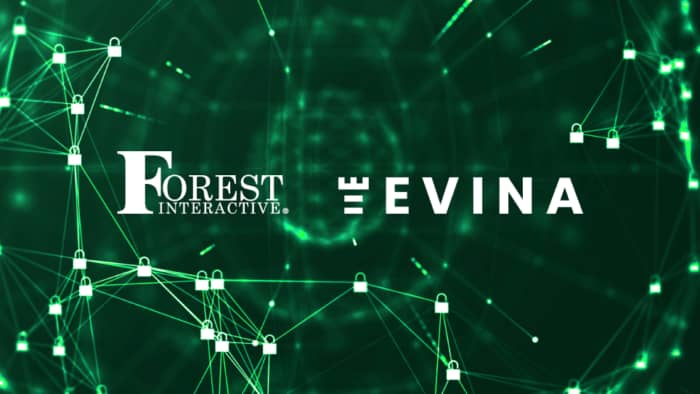The rapid acceleration of e-commerce during the pandemic has created a perfect storm for fraud detection. There are more people online, more new people online, and money is coming from new places. All of these factors can make traditional fraud detection prone to false positives and false negatives, even if the actual rate of real fraud doesn’t change, leading to a rise in fraud cases. During the circuit breaker period in Singapore, for example, the Singapore Police Force reported that they received at least 1,175 reports of social media impersonation scams in the first six months of 2020, compared to only 83 cases during the same period in 2019.
When there is a surge in new data, old data is often not enough to evaluate and authenticate identity accurately. While traditional data sets are still a vital piece of any fraud prevention approach, companies should also look to fill in newly created gaps with more real-time, predictive and intent-based options.
New scenarios that aren’t accounted for
Many traditional models are based on behavior patterns that have been completely and perhaps permanently disrupted by COVID-19. Many methods of fraud detection rely on aggregated data from past behaviors. These methods usually follow two models. Organizations establish their own risk thresholds and structure their analysis around that, or they rely on machine learning to establish a new baseline of individualized behaviors that they would deem normal.
However, these methods can no longer work in the new normal. First, an organisation’s risk thresholds must be adaptable as new customers stream in and current customers change their habits. Additionally, machine learning models are less reliable because the baseline is not as stable as it used to be.
According to a study by Facebook and consulting firm Bain & Company, online retail penetration has expanded across all categories, seeing at least a 1.4 times increase from 2019 to 2020. Increase in the groceries category nearly tripled, achieving a 2.7 times growth as more people shopped online due to the pandemic. Bulk purchases and purchases of unusual items that fall outside of typical buyer profiles have become more common, and people are also using new technologies to transact such as Google Pay, PayPal and Apple Pay. Many countries in Asia like Singapore and Japan have also been receiving government aid, thus making spending still possible from new sources.
When people stop behaving the way they usually behave, fraud detection can be significantly impacted. New customers may be flagged as fraudulent, while fraudsters might go undetected due to a surge in unusual activity that obscures their fraudulent deeds.
Here are three best practices for upgrading fraud detection online.
1. Detect Fraud with the Right Data
With an increasingly crowded online marketplace due to new customers and new activities, one source might not be enough to determine if the activity is real or fraudulent. Companies should beef up on data that proves details like customer behaviour, location, and spending are accurate. For example, someone might have an official residence in Tokyo, but may be spending time in Osaka during the pandemic. A person may have decided to travel for the first time in several months after having been sheltered for some time. These are very real behaviours that would look suspicious to fraud detection systems based on older or more static data.
Companies should find data that can help prove or disprove assertions about an individual. Some data partners offer verification of location by mobile phone, for example, or share recent online spending habits or home rental information. If someone has looked for houses for rent in a certain area, they may end up purchasing items and sending them to their new rental address.
At the same time, companies shouldn’t rely too heavily on trend data for forecasting. Probabilistic modelling is most accurate in a stable environment, where past data is likely to predict future behaviour. As trends as recent as March are no longer relevant, companies need to forecast using new types of data. People might now be unemployed, shifted houses, started ordering more meals online, or taken up new hobbies. With old probabilistic models, all of these factors would be flagged.
Intent-based data solves this problem with more real-time information such as recent search data. Intent data doesn’t care about past averages or norms, rather it is directly reflecting real behaviour that would either support or contradict current behaviour being evaluated. If someone spends time searching for car rental options for a weekend drive, that context can help predict additional related purchases that may otherwise seem anomalous. Or, it could flag a purchase in a specific location that doesn’t match with their intended use.
2. Update Outdated Rules
Identities associated with private VPNs have often been flagged. With remote work or hybrid work situations becoming a permanent trend in Asia Pacific, it’s no surprise that people are turning to making connections online and having to share computers at home. They may increase their use of different browsers or a private VPN. Or if they’re concerned about fraud, they may use a VPN to obscure their location.
Meanwhile, with many seniors now banking and shopping online for the first time, simple identity verifications that have long been put in place like log-in page timeouts, CAPTCHAs and setting strong passwords are major hurdles to winning new customers. It’s better to find authentication options that rely on other data that can work in the background, and allow for simpler processes.
3. Keep An Eye on the Future
Many companies are creating innovative solutions to help keep people safe online, while also making it easier for them to transact and move freely. Rather than keeping different passwords and security questions handy, people should be able to be trusted to be who they say they are online, just like they are offline. This only happens when privacy-compliant data works together to offer the same level of trust and efficiency as a driver’s licence or a passport would offline.
Self-sovereign identity is one innovation, based on blockchain technology, that could dramatically improve fraud detection and customer experience. It would allow people to manage their own digital identity in a safe way and share it with companies they transact with as needed.
Similarly, data consortiums that safely combine insights to create a bigger, more accurate picture of customer behaviour can help boost confidence and reduce the need for cumbersome hurdles such as log-ins and the like.
What COVID-19 has shown is that digital behavior is still evolving. Many industries saw three to five years of forecasted growth in only a few months. Industries like telemedicine and online grocery shopping will need to move quickly to secure their own businesses as they deal with new adoption just as many long-standing online businesses will need to make updates. Creating a fraud detection strategy that takes advantage of new innovations is the key to success.
The author is Nguyen Nguyen, Vice President, Partner Development & Technical Services of ADARA. ADARA is a permissioned data and verified identity tech company that provides internet marketing services, including digital marketing, programmatic advertising, search, identity and verification, or stopping fraud.
If you want to be part of MARKETECH Experts Group, please click here.










